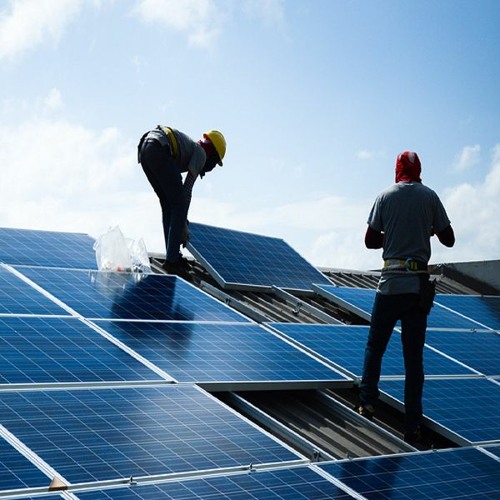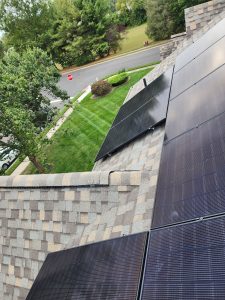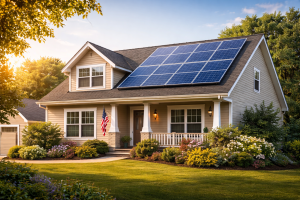
How Many Solar Panels Does It Take to Power a House? Exploring the Potential with MACK Solar and Roofing
In the evolving landscape of sustainable energy solutions, solar power has emerged as a frontrunner, promising eco-friendly electricity generation and significant cost savings for homeowners. MACK Solar and Roofing, a leading name in the industry, is at the forefront of this movement, empowering households with solar panel installations that harness the power of the sun. One of the most common questions that arise when considering a solar transition is: How many solar panels does it take to power a house? In this blog post, we will delve into this intriguing question and shed light on the factors that influence the answer.

Understanding Solar Power Basics
Before we dive into the specifics, let’s briefly recap the basics of solar power. Solar panels, also known as photovoltaic (PV) panels, convert sunlight into electricity through the photovoltaic effect. This process involves the interaction of photons (light particles) with the semiconducting material within the solar cells. The resulting direct current (DC) electricity is then converted into alternating current (AC) electricity using an inverter, making it compatible with the household electrical system.
Factors Influencing the Number of Solar Panels
The number of solar panels required to power a house varies widely based on several factors:
Energy Consumption
The first and most significant factor is the amount of electricity your household consumes. A larger energy consumption will require more solar panels to meet your needs. Your energy consumption is typically measured in kilowatt-hours (kWh) and can be obtained from your utility bills.
Location and Sunlight
The amount of sunlight your location receives plays a pivotal role in determining how efficiently your solar panels will generate electricity. Areas with higher solar insolation (sunlight exposure) will require fewer panels compared to regions with less sunlight.
Panel Efficiency
Solar panel technology has advanced significantly in recent years, resulting in higher panel efficiencies. More efficient panels can generate more electricity in the same amount of space, potentially reducing the number of panels needed.
Roof Orientation and Tilt
The orientation and tilt of your roof affect the efficiency of your solar panels. Roofs facing south with an optimal tilt angle tend to generate more electricity.
Available Roof Space
The physical space available on your roof for solar panel installation is a crucial factor. A larger roof area can accommodate more panels, allowing you to generate more power.
Battery Storage
If you’re considering adding battery storage to your solar system, you may need to adjust the number of panels to meet both immediate energy needs and charge the battery for nighttime use.
Calculating the Number of Solar Panels
To estimate the number of solar panels required for your house, you can follow these steps:
- Determine your average monthly energy consumption in kWh from your utility bills.
- Calculate your daily energy consumption by dividing the monthly consumption by 30 (average days in a month).
- Factor in solar insolation for your location, which can be obtained from solar resource maps or local solar installers.
- Divide your daily energy consumption by the average daily energy output per solar panel to estimate the number of panels needed.
Partnering with MACK Solar and Roofing
MACK Solar and Roofing understands the intricacies of solar panel installations and can guide you through the process of determining the optimal number of panels for your specific needs. With their expertise and commitment to sustainable energy solutions, they can help you make informed decisions about your solar journey.
Conclusion
The question “How many solar panels does it take to power a house?” doesn’t have a one-size-fits-all answer. It depends on various factors such as energy consumption, location, panel efficiency, roof orientation, and available space. MACK Solar and Roofing can assist you in navigating these factors, ensuring that your solar panel installation is tailored to your unique requirements. Embracing solar power not only contributes to a greener planet but also empowers homeowners to take control of their energy future.






